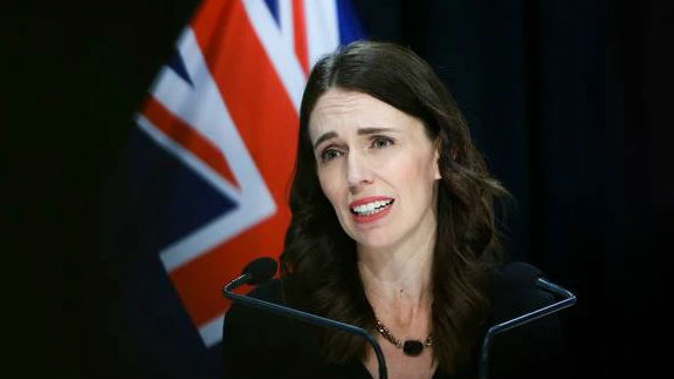
Want to know how the PM felt about the idea of making the lockdown even tougher on the back of surveys indicating public support for such measures?
Or why the Finance Minister lost the battle to open the wage subsidy to all businesses, not just those crippled by Covid-19?
Or what the Health Minister thought about the woeful contact-tracing capacity of 10 active cases at a time, in mid-March, when there were already 13 cases in New Zealand?
Too bad.
A gagging order was placed on all ministers yesterday, just before the Government dumped thousands of pages of official Cabinet papers, minutes and advice on its Covid-19 response up until April 17.
An embarrassing email from the Prime Minister's office, obtained by the Herald, directed ministers' press secretaries to issue only "brief written statements" in response to all media queries.
"Do not put Minister up for any interviews on this," the email said.
"There's no real need to defend because the public have confidence in what has been achieved and what the Govt is doing. Instead we can dismiss."
The PM's office also wanted to see and sign off all written responses.
This all seems like madness, but there is a method.
Controlling the message is critical, especially at a time of crisis, and the PM's office has clearly tried to continue its tight control over the Government messaging.
The release itself is a mammoth effort when public servants who normally process Official Information Act requests have themselves been working under extraordinary pressure.
The detail in the document drop also shows that the Government and its officials tried to base decisions in the middle of a crisis on sound advice.
But that is all undermined by the timing of the release and the gagging order accompanying it.
It is a common communications strategy to release bad news late on a Friday, when newsrooms are emptier and people are more focused on weekend plans rather than the news.
(Official documents about Czech drug smuggler Karel Sroubek, for example, were dumped in the afternoon of the last Friday before the Christmas break in 2018.)
The PMO's email says the release of the documents was delayed by "some late items", but that still doesn't change the fact they dropped immediately after the last Government press conference before alert level D-Day on Monday.
With the gagging order, there is virtually no chance to ask a minister about anything in the documents for three days, and by the time Jacinda Ardern fronts on Monday afternoon, the nation will be firmly focused on whether we are moving to alert level 2.
And it's not just the cynical timing. The "no real need to defend ... we can dismiss" reeks of arrogance - the subtext is "we are above scrutiny" - and blatantly flouts Ardern's cultivated reputation for openness and transparency.
It may have been intended as a guide to dealing with journalists, but in a crisis the role of the media as a proxy for the public is amplified and this is a slap in the face for both - a disregard for the fourth estate as well as the public interest.
It also undermines the access provided in the almost-daily press conferences that have taken place during alert levels 3 and 4.
There is a wealth of fascinating information in the documents that provides a glimpse of the scale and unprecedented nature of the response, as ministers grappled with whether to leave liquor stores open during lockdown, how to deal with a spike in online pornography, and how to pay the costs - estimated at $14 million - to get Kiwis stranded overseas home.
Then there is the economic upheaval and the debate about having employers on the wage subsidy cover 60 or 80 per cent of workers' wages, or whether businesses should get a GST holiday.
The documents also shed light on the frightfully low contact-tracing capacity in mid-March, the empty homes where people were meant to be self-isolating (in two out of 50 police checks), and the limited means beyond hopes and prayers to ensure essential workers were being protected at work or Covid-carrying people weren't leaving their homes.
All this actually underlines what Ardern has been saying - that New Zealand's success comes as the Government made bold decisions in an unpredictable moving feast, that expecting perfection is unreasonable, and that the Government's work would have amounted to little without the backing of Team Five Million.
Even if the information drop could not have happened before yesterday afternoon, ministers should be able to front.
Not all ministers are created equal, and the PM's office may have been nervous about a minister answering in a way that could embarrass the Government.
But there is a chance of that happening every time a minister opens their mouth, which they do all the time, and not just during Question Time. Press gallery journalists can and do grab ministers and MPs for interviews on their way in or out of the House, or while walking to weekly caucus meetings.
The shackles should be discarded and ministers should be open to scrutiny. If they can't be trusted to answer questions about their portfolios, they shouldn't be ministers.
Take your Radio, Podcasts and Music with you









